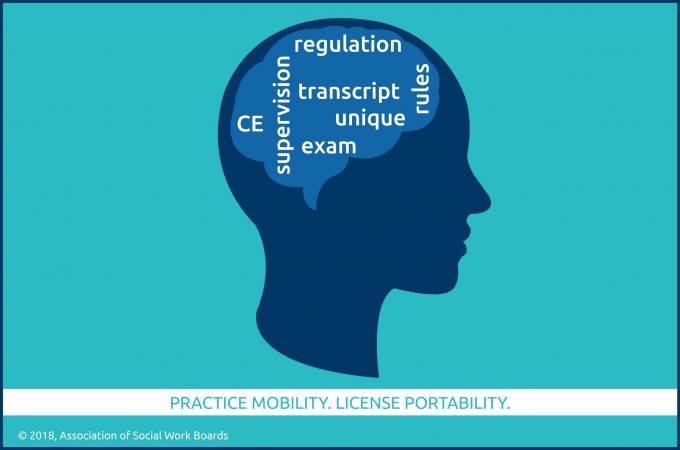
“Even though social work practice is largely the same everywhere,” says Brian Carnahan, executive director of the Ohio Counselor, Social Worker and Marriage & Family Therapist Board, “every state is unique.” Asked to share advice with social workers looking to add a license in a new jurisdiction, he offers the insight that social work regulation is different in every U.S. state and territory. “Sometimes social workers moving to Ohio are shocked to find out they are not able to practice immediately.”
Carnahan says some social workers don’t realize, for example, that they may be required to take a different licensing exam to get a similar license in a new jurisdiction. And social workers adding an Ohio license can be surprised to learn that they need a special license designation to serve as a social work supervisor.
The variation in licensure requirements makes it challenging to generalize. Typically, though, social workers who wish to add a new license must fill out an application, supply a transcript and supervision records, and demonstrate they’ve passed the appropriate licensure exam. “Social workers need to know the basics,” Carnahan says. “They should come into the process knowing where to get their transcripts and supervision records.”
And once licensed, he says, the social worker must learn how to stay licensed in the new jurisdiction by, for example, following new rules for continuing education.
Carnahan’s best single piece of advice can be summed up simply: “Read the new state’s rules.”
ASWB resources help social workers follow Carnahan’s advice. Get started by looking up your jurisdiction’s rules and regulations and finding resources for social work mobility.